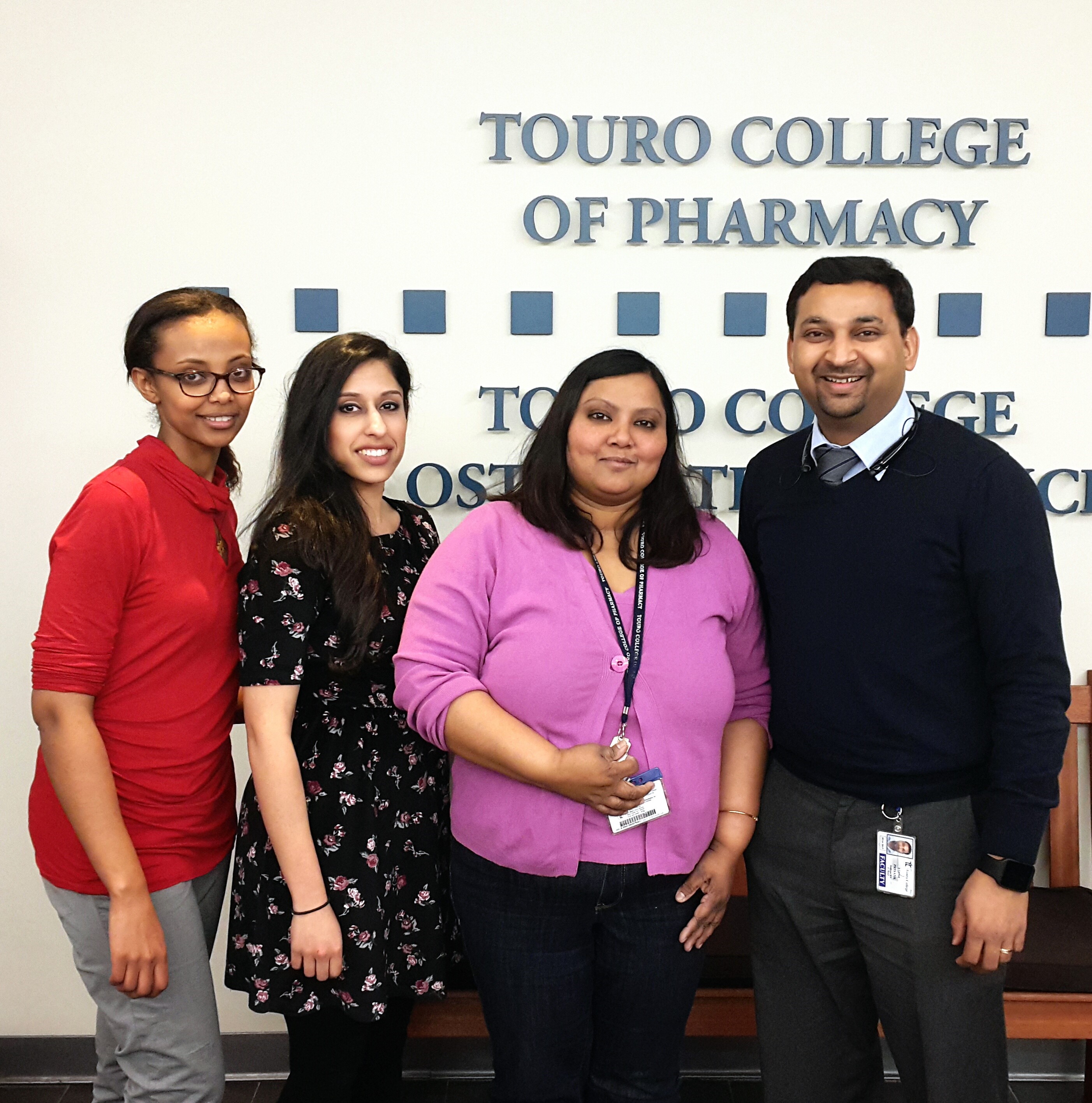News
The Fight Against Ebola
TCOP students and professors publish one of the first scientific studies on the deadly virus epidemic

On August 8, 2014, the World Health Organization announced that the Ebola virus disease (EVD) epidemic was a Public Health Emergency of International Concern. Three months later, more than five thousand people had reportedly died from the virus.
Touro College of Pharmacy (TCOP) students Arooj Akhtar and Eyerusalem Befkadu, along with their Pharmaceutical and Biomedical Sciences professors Dr. Priyank Kumar and Dr. Paramita Basu, were one of the first to publish an extensive study in the American Journal of Infectious Diseases and Microbiology exposing the origins and nature of Ebola.
The paper, titled “Exposing the Origins of the Ebola Outbreak: Urging for a Shift in Response from Reactive to Proactive,” was novel not just because it was one of the earliest literature reviews published, but because Akhtar and Befkadu, along with their professors, discussed several possible causes and triggers of the disease, including “a shift in seasons, lower temperatures, higher humidity, deforestation, the region's socio-political climate, and dietary micronutrient deficiencies."
The paper analyzed the growth dynamics of the epidemic in efforts to shed scientific light on the panic-inducing disease and its recent outbreak. “Contributing to the success of the virus was the delayed identification of the outbreak, which initially spread, unsuspected, to neighboring regions, like Sierra Leone, Guinea, and Liberia, which share common cultural and geographic traits,” said Dr. Basu.
"We emphasize that rather than reacting to EVD with fear, the global community should strengthen the arsenal of EVD-fighting treatment options and precautionary measures in an attempt to shift the response from reactive to proactive,” said Dr. Kumar.
Because information on the disease was being updated hourly, Arooj and Eyeruslame spent long hours monitoring news alerts. “The day before we submitted the manuscript, I remember making sure we covered all the Ebola updates from the day before. Apparently, the last American patient was being flown in from Nigeria to America that day, and we had almost missed it!”
“It was the first time I had dealt with a topic that was trending,” said Arooj, a P3 student, who is currently doing her rotations at CVS. “Things changed every day, so we had to write—and revise—in real time. We didn’t start out with a wealth of information like we would have with other topics.”
The students were granted the privilege of being named first authors. “The most rewarding part of all this was overseeing the project from inception all the way to publication,” said Arooj.
Arooj Akhtar, Eyerusalem Befkadu, Paramita Basu, and Priyank Kumar, “Exposing the Origins of the Ebola Outbreak: Urging for a Shift in Response from Reactive to Proactive.” American Journal of Infectious Diseases and Microbiology, vol. 2, no. 6A (2014): 1-18. doi:10.12691/ajidm-2-6A-1.
Update: As of July 2015, the study has been viewed more than 3000 times and has received almost 2000 downloads.

